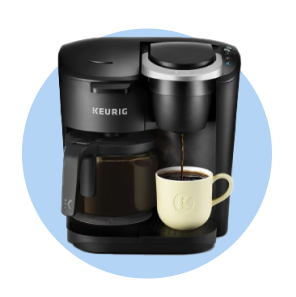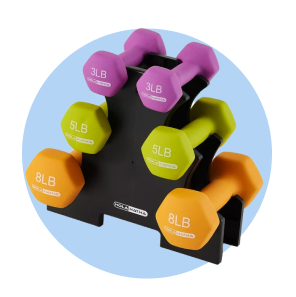
Office Cameras: Balancing Privacy & Safety in the Workplace
Security requires trust
Security cameras are useful tools for theft reduction and workplace safety, but that doesn’t mean everyone is comfortable with surveillance. In fact, half of employees would consider taking a pay cut if it meant employers couldn’t watch them! Finding the right balance between security and privacy isn’t easy, but there are ways to implement office security cameras while maintaining a respectful work environment.

Why use cameras for office security?
Safety
Perhaps the most crucial benefit of office cameras is improved workplace safety. While not as hazardous as some industries, offices do face dangers—according to the Bureau of Labor Statistics 100,000 injury and illness-related incidents within a two-year period led to time off work.
Monitored cameras allow for faster emergency response times. If someone collapses in a low-traffic area, someone can spot them on a security monitor and immediately assist. Cameras are also an excellent source of unbiased accident data. Businesses can use cameras to identify hazards more accurately than personal observations alone, which lets office managers make more informed decisions.
Workplace theft
Offices need to worry about theft. Approximately 75% of employees steal from an employer at least once, taking anything from office supplies to intellectual property. On top of this, burglars can still break into your building if an opportunity presents itself.
In all cases, installing office cameras in visible locations can deter theft and contribute to staff accountability.
Insurance & legal protection
Outside of safety and theft, office cameras protect businesses legally and financially. Cameras can deter frivolous lawsuits and workplace fraud from disgruntled employees, while the footage itself can defend your interests in a courtroom.
Even outside of legal matters, cameras can simply help save money. When applying for insurance, CCTV and security systems can sometimes help your business secure lower insurance rates.

When surveillance erodes trust
Despite all the benefits of office security cameras, monitoring employees can be controversial. Employees tend to chafe under surveillance measures, often becoming stressed and uncomfortable. More worrying are studies that suggest employees start to act out and break rules when managers track them too closely.
Part of the problem is that cameras can communicate a lack of trust. Another challenge is workplace surveillance can reflect productivity paranoia—a tendency among managers to believe workers are less productive than they actually are.
Build an expectation of privacy
It’s worth noting that employees aren’t opposed to workplace cameras, provided businesses implement them in the right way. According to Pew Research, 54% of employees would find cameras and long-term footage retention acceptable if employers maintain certain expectations of privacy.
In short, employees don’t want omnipresent surveillance that intrudes on their work and assumes bad faith. Employees tend to see the wisdom of having office security cameras in public areas, entrances and any location where valuables are stored. This goodwill ends when cameras are in private locations or used as performance trackers.
Most importantly, employees want the cameras to address specific needs, not broad concerns. If workplace theft in a break room becomes an issue, people are generally open to installing cameras to help prevent it, for example.

Think legally & ethically about security
Before installing any cameras, business owners should pay close attention to regulations around their use. Surveillance legislation often varies between state and federal levels, plus there can be further variance between unionized and non-unionized workplaces.
In general, most compliance rulings are rooted in key ethical principles:
Cameras need a purpose. Businesses should install cameras to address a specific issue, rather than having them “just in case” or in support of nebulous definitions of productivity.
Footage should be carefully managed. Owners and managers should implement policies for how security footage is used. For example, they should consider which roles will review footage and what context is required for watching or sharing recordings.
Recordings cannot be stored indefinitely. Businesses need clear timeframes for how long they keep footage and a process for deleting footage beyond that point.
If nothing else, business owners should ask themselves exactly what their cameras will do. When the goal is safety, you can consider potential hazards and office design flaws that require monitoring. If the goal is productivity, however, cameras probably aren’t the right tool—instead, look at productivity tools with more reliable effects, such as noise reduction or time management.
Cameras may not be a one-size-fits-all solution, but businesses that are intentional about their use can achieve their goals far more effectively.
Need the right office camera? Walmart can help.
Whatever your need, finding the best office security cameras is a challenge in itself. That’s where Walmart Business comes in. We offer a wide selection of indoor and outdoor cameras to make sure your business is protected from every angle. If you already have an account with us, upgrade to a Walmart Business+ membership for free shipping access,1 free delivery from store on orders over $352 and 2% rewards back for purchases over $250.3 And that’s before the chance to save over $500 each year!4 Learn more here.


Limited-time offer
Unlock your special promo code
Stay informed on Walmart Business news & get $20 off a $100 purchase!1
1Minimum order of $100. Promo code can be used one time & may not be combined with other offers. Offer not transferable & void where prohibited by law. Customer responsible for all applicable taxes. Offer expires 12/31/2025 at 11:59pm PT. Further restrictions apply. See terms at checkout for details. Promo code offers available in limited quantities. While supplies last.
1 Excludes most Marketplace items, freight and certain location surcharges.
2 Restrictions apply.
3 Rewards can only be used toward future purchases on Walmart Business. Additional terms apply.
4 Savings based on 1 free $35+ delivery order vs. $9.95 fee and 1 free shipping order under $35 vs. $6.99 fee biweekly, plus 2% Walmart Business Rewards on monthly order >$250 (average value of $400).
Exciting news awaits
Hear firsthand about new products, features & promotions.
By clicking submit, you agree to receive emails about Walmart Business and acknowledge you have read and agreed to our Terms of use and Privacy Policy.










